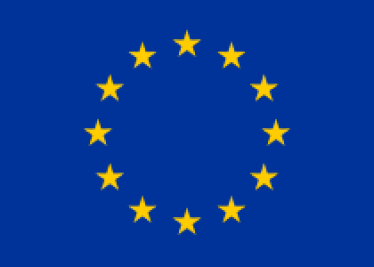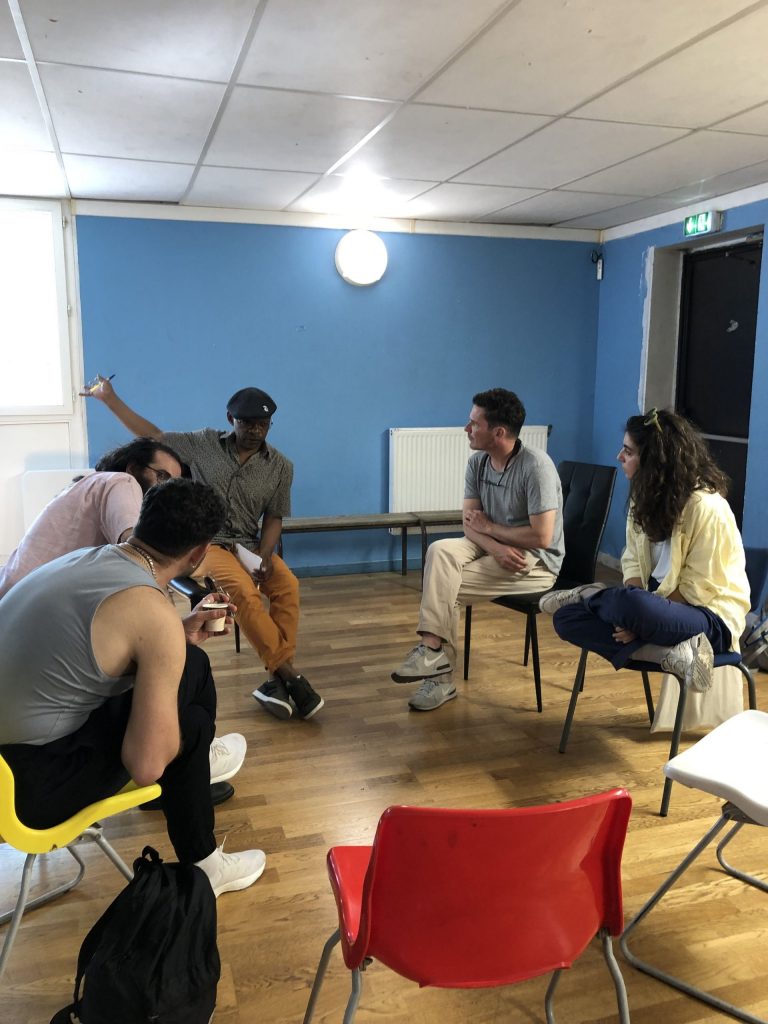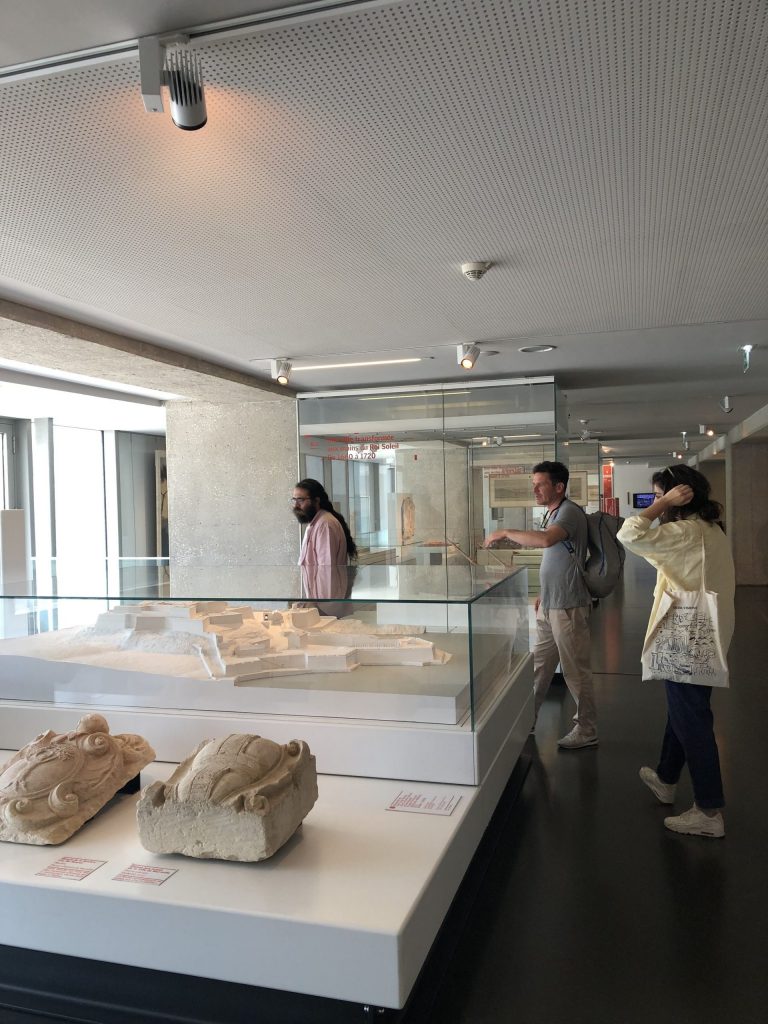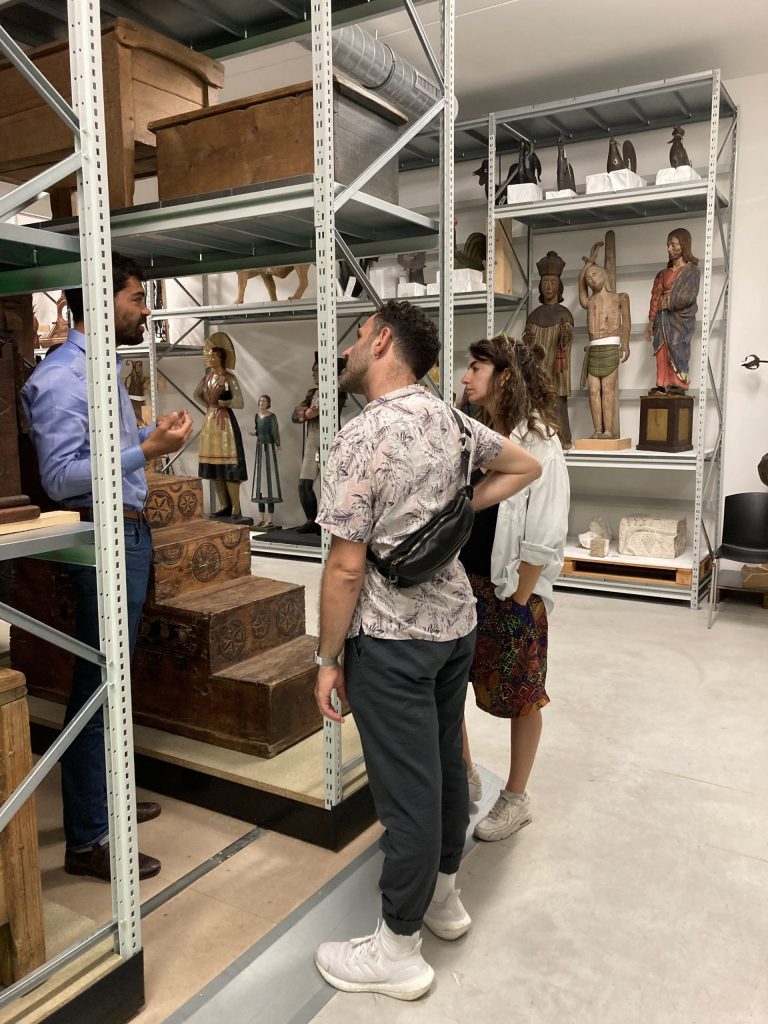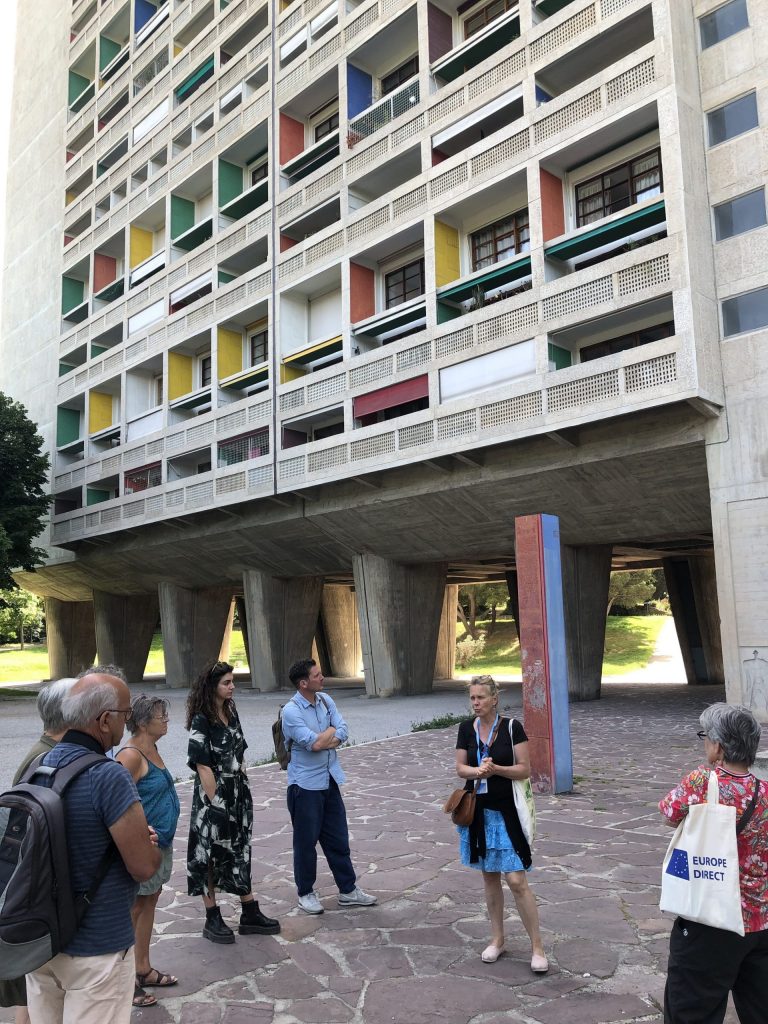Caravan Residency program at Alexandria – Discovering the residence in Marseille
After illustrating the stages of the ‘Caravan Residency Program: Thinking with Alexandria’ held in Biella, Alexandria, Nicosia, Brussels and Athens, we highlight the contents and behind the scenes of the last stage of the residency held in Marseille 16-21 May. For the occasion, social entrepreneur Alexandre Fiels accompanied the Caravan group to discover the French city, in an immersive experience in Marseille that was articulated through confrontations and collective meetings.
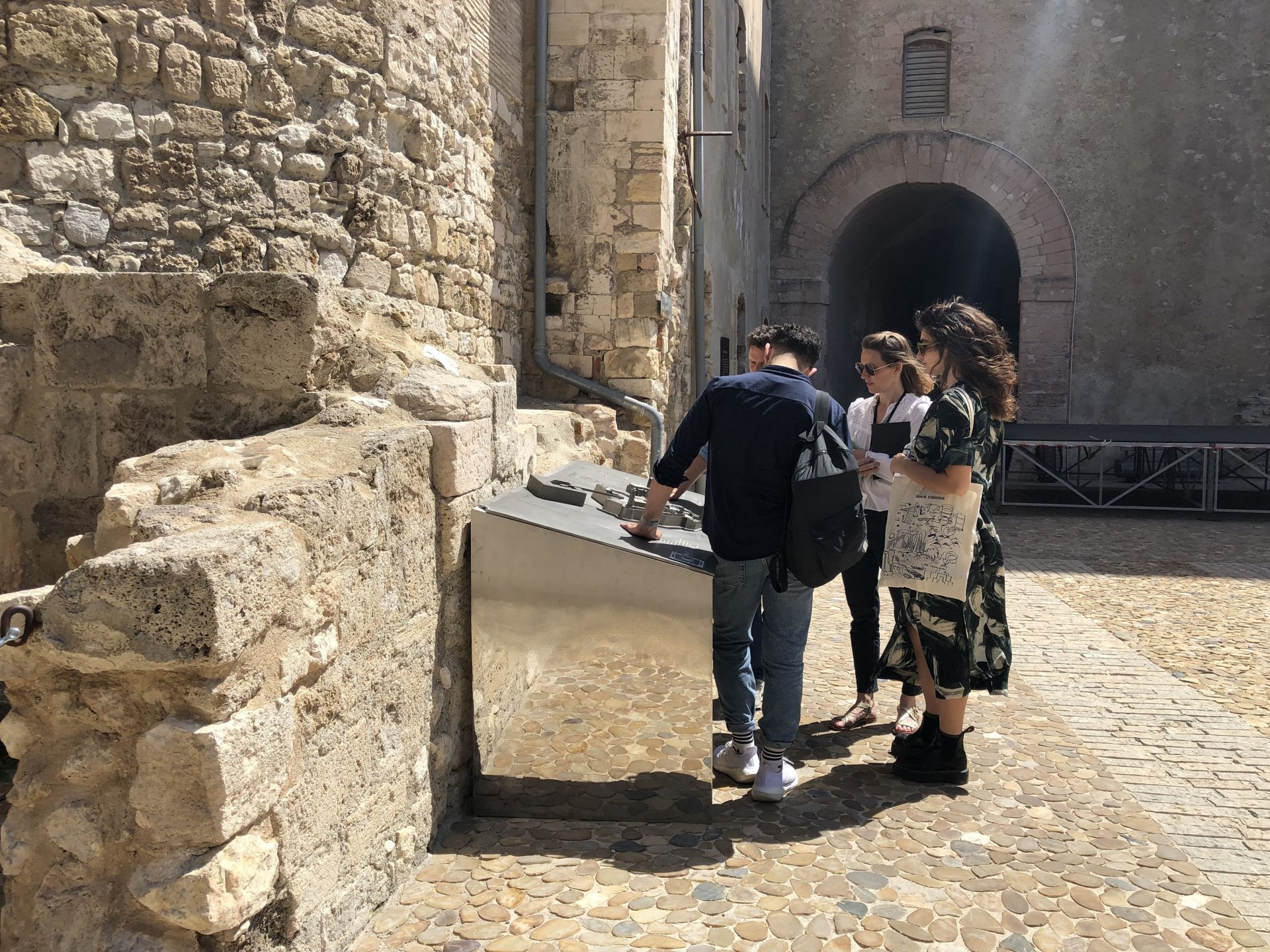
Simultaneously with the Athens residency, on the week of 16-21 May, others selected from the ‘Caravan Residency Program’ participated in the stage held in Marseille, a port city on the Côte d’Azur, France. Social Entrepreneur Alexandre Fiels (architect and lecturer at the National School of Architecture in Marseille), as he emphasised in the final report on this experience, organised the six days on French soil on the basis of the project’s general objectives expressed during the previous stages, particularly the initial ones in Biella and Alessandria. In fact, a visit to the MUCEM, Museum of European and Mediterranean Civilisations, as the first activity of the stay was not by chance, so as to highlight the links between the different urban poles on the Mediterranean.
There were further immersions within the museums of the French city on the following days, but it was the exploration of the city’s neighbourhoods that characterised the six days of the residency and provided a general overview of the characteristics of the French port city. The southern districts allowed the discovery of ‘La Cité Radieuse’, the collective building project realised by le Corbusier in 1945. A visit to this architectural masterpiece provided an introduction to the long history of experimentation with social housing in Marseille, both in the aftermath of the Second World War and after the 1962 Evian Agreements to transform ‘housing into a real public service’ and to ‘replace the city’.
However, it was the northern districts that showed a side of the city that was more distant and detached from the centre of the urban pole. A distance that, as Soly Mohamed Mbae, former member of the rap band B.Vice and founder of the Sound Musical School, explained, was sought to diminish in the 1990s through an extensive renovation project. Of course, one could not miss the walk along the ‘corniche’ to discover the city’s relationship with its port, and the way the coast is gradually being made accessible to the public.
In addition, there were numerous meetings with local associations and personalities during which, among the various aspects addressed, the importance of archives in particular emerged. Indeed, both the members of the Homosexual Liberation Group and the members of the MUCEM Resource and Conservation Centre demonstrated how the preservation of past work, from leaflets to audio cassettes, becomes necessary in the future and can, in certain cases, convert into true ‘archival activism’. So that the residents of the Marseille stage could enjoy the last day in the streets of the French city, the end-of-residency forum took place on the penultimate day, at MUCEM. During this moment of collective discussion, the themes and fields of investigation addressed during the residency and the ways in which this research could continue and develop beyond the end of the residency emerged.
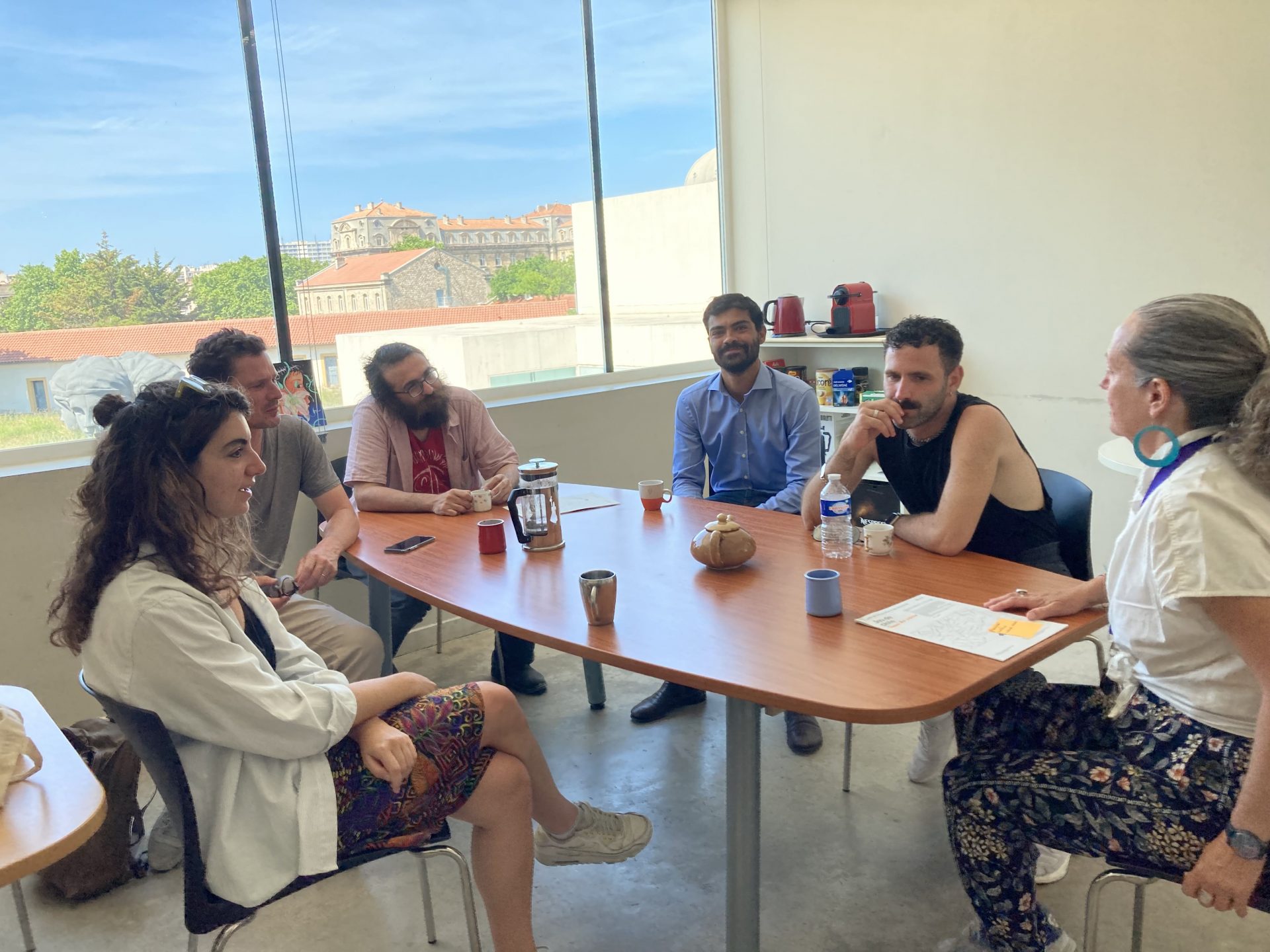
The protagonists of the residency in Marseille
The Social Entrepreneurs of this experience were Alexandre Field. The residents participating in this stage of the project were: Mark Lofty, Stella Ioannidou and Mahmoud El Safadi.
The social entrepreneur in residence in Marseille:
Alexandre Field is an architect and teacher at the National School of Architecture in Marseille. Co-founder of the Bureau des guides | GR2013, he participates in making the metropolitan trail a means of exploring the territory and a way to tell its stories. This original peri-urban trail is curated as a unique metropolitan cultural facility.
Text: Cittadellarte





